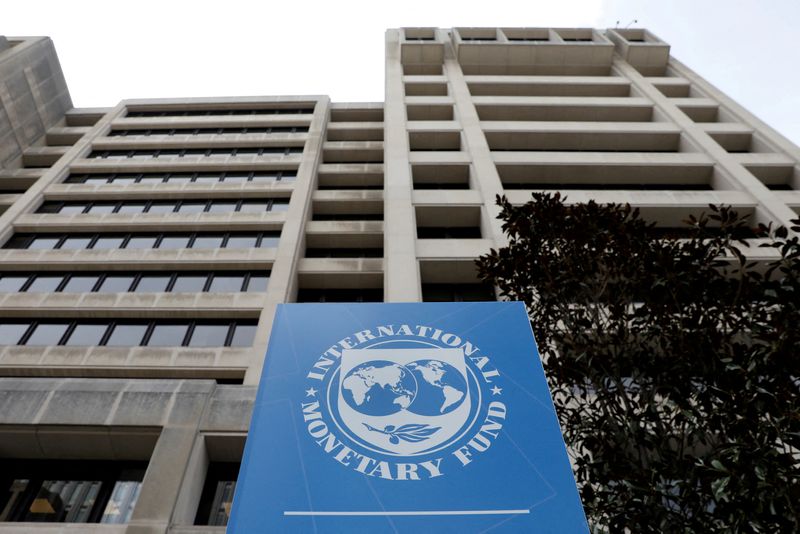By Jan Strupczewski
BRUSSELS (Reuters) - The European Union should set up a fiscal capacity to pay for EU public goods, link the pace of debt cuts to individual country risk and let independent fiscal councils play a bigger role in policy, the International Monetary Fund said on Monday.
The IMF proposal is timed to coincide with the start of discussions among EU finance ministers later this week on how to adapt the EU fiscal framework to the new reality of huge public debt and large investment needs to limit climate change.
The EU's fiscal rules are to safeguard the value of the euro by putting limits on government borrowing. They set a ceiling for government deficit at 3% of GDP and for public debt at 60% of GDP and envisage disciplinary steps if the limits are broken.
But after the COVID pandemic the debt ratios have become as diverse as 190% of GDP in Greece to 17.6% in Estonia and the existing debt reduction rules are not feasible for highly-indebted governments.
The IMF therefore proposed that each country should have a different debt reduction path.
"The speed and ambition of fiscal adjustments would be linked to the degree of fiscal risks," the IMF proposal said.
The risk level would be set by a debt sustainability analysis with an agreed common methodology, developed by a new and independent European Fiscal Council, or deputy EU finance ministers grouped in the EU's Economic and Financial Committee.
"Countries with greater fiscal risks would need to converge to a zero or positive overall fiscal balance over the next three to five years," the IMF said.
"Countries with lower fiscal risks and debt below 60 percent would have more flexibility but still need to consider risks in their plans," it said.
CLIMATE, COVID CHANGES
The IMF said independent national fiscal councils should play a bigger role in policy making by endorsing macroeconomic projections, assessing fiscal risks and ensuring the consistency of expenditure ceilings and fiscal plans.
The EU should also set up a fiscal capacity for macroeconomic stabilization and to provide common public goods at the EU level, the IMF said, repeating a proposal that has in the past been rejected by EU governments.
But the situation has changed as climate change has become an existential challenge and the EU's post-pandemic recovery fund broke the taboo of joint EU borrowing.

The IMF said the public goods paid for by the new fiscal capacity could be linked to fighting climate change and the EU's energy security infrastructure.
"Delivering these has become more urgent due to the green transition and common security concerns. A dedicated climate investment fund is an important part of the proposal," it said.